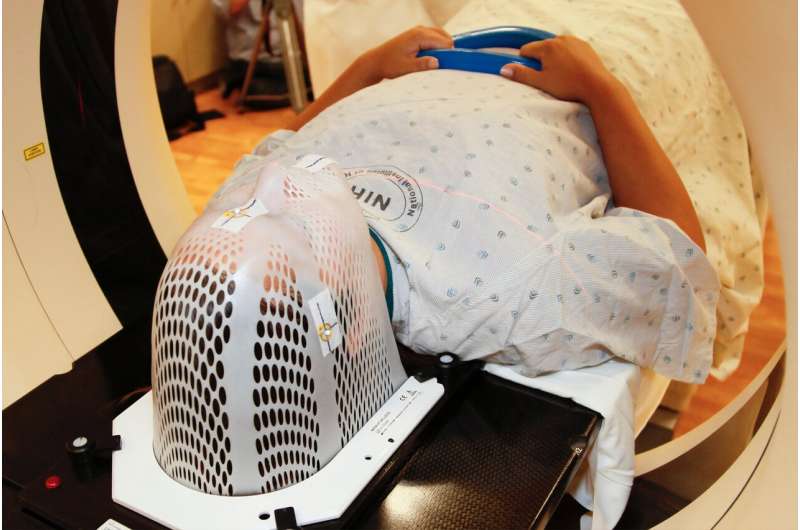Doctors co-author first international consensus statement on cardio-oncology

The first multidisciplinary international consensus statement on radiation therapy in Cardio-Oncology, an emerging field of medicine examining treatment-induced cardiovascular risk, has been published in the Journal of the American College of Cardiology: CardioOncology.
Led by international cardiology and oncology experts, including Australian GenesisCare cardiologists and radiation oncologists, in partnership with the International Cardio-Oncology Society, the review article, Cardiovascular Manifestations From Therapeutic Radiation: A Multidisciplinary Expert Consensus Statement From the International Cardio-Oncology Society, highlighted unique management considerations in radiation-induced cardiovascular disease and provided critical recommendations for the cardiovascular management and follow-up of patients undergoing radiation.
According to article co-author Dr. Daniel Cehic, Cardiology Chief Medical Officer and Clinical Lead for Cardio-oncology, GenesisCare, Sydney, current guidelines do not incorporate newer screening modalities that could help to determine a patient's cardiovascular risk pre, during, and post-radiation therapy.
"A patient's underlying cardiovascular risk and the dose of radiation delivered to cardiovascular structures are two determining factors in treatment-related cardiovascular disease. We must therefore identify and address cardiovascular risk factors, and minimize the amount of radiation to the cardiovascular system, without affecting treatment outcomes, to prevent and manage cardiotoxicity," said Dr. Cehic.
"Coronary artery calcium (CAC) scoring is a significant predictor of cardiovascular risk, and is captured in routine CT imaging performed during cancer screening or staging, and radiation planning. We have this information already being captured that can help to inform a patient's cardiovascular risk and potential preventative or management strategies from the outset of treatment planning.
"However, without increased awareness of the interplay between radiation therapy and cardiovascular consequences among all disciplines, and the significance of risk markers such as Coronary Artery Calcium scores (CACs), this represents a substantial missed opportunity to further optimize long-term survivorship," Dr. Cehic said.
The paper emphasized that modern radiation techniques minimize dose to healthy tissue, but depending on the site irradiated, there is a level of cardiovascular risk. Therefore, it is recommended any patient who undergoes radiation is assessed, regularly screened and treated for cardiovascular risk factors and disease, at least annually.
The consensus statement provides recommendations on short and long-term cardiovascular screening guidelines, specific to the irradiated area (head and neck, thoracic, and abdominal and pelvic regions) at baseline, year one, annually and every five years.
At baseline, and annually thereafter, it is recommended all patients undergo a comprehensive cardiovascular history and physical examination to evaluate cardiovascular risk factors, such as hypertension, diabetes mellitus, and a review of available CT imaging to assess atherosclerotic calcification.
Dr. Jo Toohey, Radiation Oncologist with GenesisCare and article co-author, said the development of international, multidisciplinary guidelines will help to provide more comprehensive, holistic care to cancer patients and survivors.
"As our detection and treatment of different cancers improves, we are seeing an increase in long-term survivorship of patients. However, cardiovascular disease overtakes cancer as the primary cause of mortality by year 13 and overall the risk of fatal heart disease for cancer patients is more than twice that of the general population.
"Having an improved understanding of the link between oncology treatment and cardiovascular outcomes enables us to consider the potential complications and incorporate appropriate screening, mitigation, and prevention strategies at all levels of practice, and across all disciplines.
"The development of the consensus statement is a significant step forward in helping to improve the multidisciplinary management of oncology patients, and further improving quality of life and outcomes for long-term survivors," Dr. Toohey said.
More than 50 per cent of oncology patients access radiation therapy as part of their treatment regime. It is therefore critically important that the potential short and long-term adverse cardiovascular effects associated with radiation therapy are considered and managed accordingly.
Key consensus statement highlights:
- Depending on the anatomical region irradiated, the dose delivered and pre-morbid risk factors, radiation therapy may contribute to short- and long-term cardiovascular adverse effects
- Computed tomography scans conducted for radiation planning and cancer staging provide an opportunity to detect asymptomatic atherosclerosis and direct preventive therapies.
- Additional practical screening recommendations for cardiovascular disease based on anatomical exposure are provided.
- There are unique considerations in the management of potential radiation-induced cardiovascular disease; contemporary percutaneous treatment is often preferred over surgical options.
More information: Joshua D. Mitchell et al, Cardiovascular Manifestations From Therapeutic Radiation, JACC: CardioOncology (2021). DOI: 10.1016/j.jaccao.2021.06.003


















